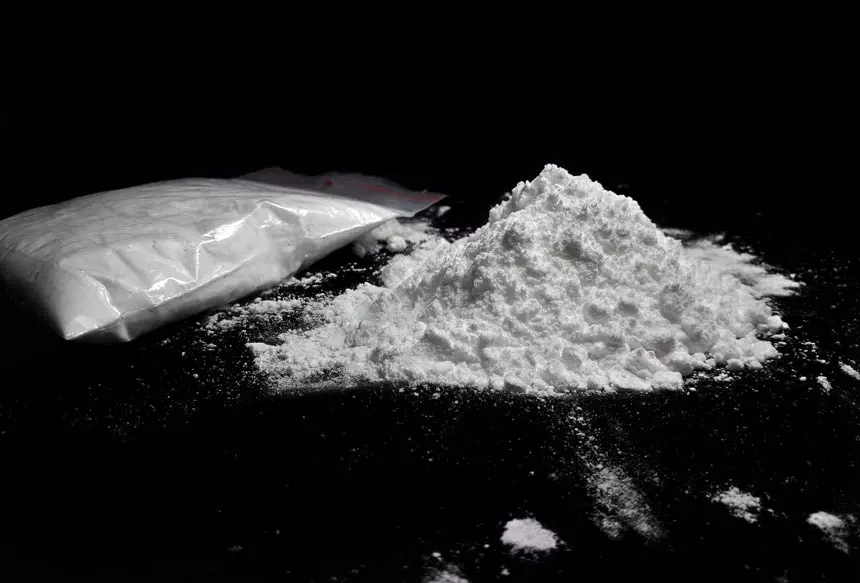What is Heroin?
Table of Contents
- What is Heroin?
- How is Heroin Used?
- What Are the Effects of Heroin Use?
- What Causes Heroin Addiction and Dependency?
- How Long Does it Take to Become Addicted to Heroin?
- Know the Signs and Symptoms of Opiate Abuse
- Heroin Withdrawal Symptoms
- What are the Effects of Heroin Abuse?
- Frequently Asked Questions on Heroin Abuse:
- Addicted to Heroin? Find Treatment Options Now!
Heroin is a semi-synthetic opiate that is both illegal and highly addictive. It originates from the opium poppy seed plant and is then synthesized from morphine. The opium poppy seed plant contains a naturally occurring alkaloid responsible for pain relief.
But, when synthesized these alkaloids become more strong and more addictive leading to Heroin abuse. Heroin is usually found as a white or brown powder but is also found as a black tar or as a solid black chunk.
Keep reading to find out about heroin use and abuse, and how to find effective forms of treatment for opiates!
How is Heroin Used?
Heroin can be used in several ways. The most common methods of consuming heroin include smoking, snorting, or injecting it directly into the bloodstream. With more pure forms of heroin, people will often smoke it in order to achieve a faster and more intense high.
It is also common for heroin to be combined with other illegal drugs and substances. The most popular of these combinations is mixing heroin with cocaine, a process that is commonly called “speedballing.”
What Are the Effects of Heroin Use?
When you use heroin, this substance quickly enters your system, traveling directly to the brain and binding to opioid receptors and other cells. In particular, heroin interacts with the areas that control feelings of pain and pleasure, as well as your heart rate, sleeping, and breathing.
This interaction produces intense feelings of euphoria and pleasure, which can make you want to use the drug again and again. Over time, however, this behavior will cause you to build a tolerance to heroin.
Once this happens, in order to achieve a heroin high, you will have to continue your opioid use in continuously higher doses and/or more frequently than before. This, in turn, will cause you to develop a heroin dependence and addiction.
What Causes Heroin Addiction and Dependency?
A lot of times, heroin addiction stems from an addiction to opioids. Opioids are synthetic opiates such as Norco, Percocet, Dilaudid, Fentanyl, Lortab, and Demerol. It can even start from an addiction to other opioid medications such as Codeine and Morphine.
Since these are prescription opioid painkillers, they are accessible through guided use by their doctor. After a period of continued use, they can become “tolerable” for those seeking a high from these prescription medicines.
Thus, when seeking a greater high, those who began their opioid misuse with prescription drugs will generally turn to heroin. After all, this can be a cheaper and more easily accessible option in comparison to highly regulated and less intense prescription opioids.
Yet, some people turn straight to heroin over prescription drug abuse due to the infamous euphoric type high that it produces. Abusers describe the feeling as a “rush”. Descriptions of this rush include feelings of pleasure, painlessness, and confidence.
How Long Does it Take to Become Addicted to Heroin?
Most people know that heroin is an addictive drug, and will start this drug use despite being aware of its high risk for addiction. Unfortunately, most people fail to realize just how quickly this drug can lead them to form physical dependence on it. Every person is different, meaning there is no exact timeline for how long it may take for someone to form heroin or opioid addictions.
While one person might become hooked on this substance after one use, someone else may use heroin for several weeks before this occurs. There is also the fact that physical addiction and physiological addiction can develop at separate times. Overall, once heroin enters your system, it can be assumed that you will be almost guaranteed to form an addiction to this drug.
With that being said, the best way to prevent heroin addiction is to simply just never use it to begin with. While the euphoric high the substance use can produce can be tempting, it is not worth the devastating consequences it can have on your mental and physical well-being.
Assuming total abstinence has not been possible, keep reading to find about forms of effective treatment once you are physically dependent on heroin.
Know the Signs and Symptoms of Opiate Abuse
Whether you have been using heroin over a long period of time, or have just begun experimenting with this drug, the damage that can occur from this is extensive and serious. In many cases, these side effects can last for years even after your opioid use has stopped.
Most signs and symptoms are obvious, but others can be hard to detect. Visible signs and symptoms during and after taking the drug may include:
- Slow movement
- Sleepiness, or “nodding off”
- Slurred speech
- Slowed breathing
- Slow heart rate
- Sleepiness
- Change in behavior
Other signs and symptoms are more long-term. These signs and symptoms may include:
- Strained or broken personal relationships
- Stealing or other illegal activity
- Extreme behavioral changes
- Sores, scratches or bruising from skin-picking
- Weight loss
- Financial and work difficulties
- Track marks, or injection injuries in the skin
- Changes to sleeping habits
There is also various paraphernalia to look out for that can indicate the abuse of opioid drugs, including:
- Syringes and needles
- Burned spoons
- Burned aluminum foil
- Any kind of suspicious or burned pipe
- Missing shoelaces (used for “tying off” injection site like a tourniquet)
- Plastic bags with white or brown powder residue
Heroin Withdrawal Symptoms

As such a highly addictive substance, attempting to drastically reduce or suddenly quit this drug use can cause you to develop both physical and psychological withdrawals. Some of these symptoms include:
- Vomiting
- Visible shakiness
- Sweating
- Fatigue
- Seizures
- Hallucinations
- Irritability or lashing out
- Loss of appetite
While these are not the only withdrawal symptoms that may occur during this period, they are some of the most common. Because these symptoms can become extreme, it is important to seek medical attention and professional help when attempting to overcome your opioid addiction.
What are the Effects of Heroin Abuse?
Heroin not only affects the user but affects everyone around them. Heroin can cause users to lie and steal, lose their jobs, and sadly lose their lives. Heroin overdose is a real problem and thousands of people are losing their lives every year, contributing to what is currently called the “opioid epidemic,” according to the U.S. Department of Health and Human Services.
Heroin affects the user’s health and well-being. Abusing heroin over longer periods of time can cause heart problems and lung complications. It causes irregular menstrual cycles in women and sexual dysfunction in men.
Infections in the heart and on the skin are common as well as sleeping disorders. Sharing of equipment such as needles and syringes can result in Hepatitis B or C and HIV. Overall, these long-term effects can be extremely impairing, if not life-threatening, making prevention and recovery services all the more important.
With the flood of fentanyl in the US drug supply and new, even stronger, opioids such as the ‘Iso drug,’ on the horizon, choosing recovery can make the difference between life and overdose. If you or a loved one are struggling with heroin abuse, there has never been a better time to choose sobriety than right now.
The Rise in Opioid Overdose Deaths in the U.S.
Heroin overdose deaths are on an extreme rise. According to the Center for Disease Control and Prevention (CDC), the number of drug overdose deaths increased by nearly 5% between 2018 and 2019, with over 70% of the 70,630 deaths recorded in 2019 involving both prescribed and illegal opioids, such as heroin.
Over a twelve-month period for the first time, during 2021-22, more than 100,000 Americans died as a result of overdose, largely due to heroin and particularly fentanyl, but also with rising rates of a methamphetamine overdose.
Frequently Asked Questions on Heroin Abuse:
Why is Rehab A Good Option For Heroin Abuse and Addiction?
In order to successfully overcome one’s heroin dependence and stop using this drug, you will need to go through an extensive heroin addiction treatment program. These programs can help you rebuild your life and live addiction free.
Professional treatment facilities such as those found through Find Addiction Rehabs offer various different recovery programs and behavioral therapies that will help you work through the reason why you started to use heroin in the first place and learn to overcome these challenges in a healthy, constructive way.
Why Should I Seek Treatment for My Substance Use Disorder?

Effective treatments allow you to attend programs that will successfully help you change your life. The effects can be seen almost immediately. The ability to handle emotions and think clearly in order to make decisions in a healthy way is one of the greatest benefits of treatment.
Personal relationships with family and friends will begin to strengthen and a support system will be in place in order to help you with any problem you are facing so that you never have to go back to abusing heroin again.
By attending professional treatment programs, you can take a stand for yourself and save your life from heroin abuse. You are the only person who is capable of stopping and changing your life, but with the help of addiction treatment providers, you do not have to do it alone.
Addicted to Heroin? Find Treatment Options Now!
If you believe you or a loved one may have an addiction to heroin, please do not hesitate to seek out help with a quick and confidential phone call to our recovery representatives at Find Addiction Rehabs.
Reach out 7 days a week 24 hours a day to find addiction treatment options that will take your unique history into account and provide you with top options across the country!


